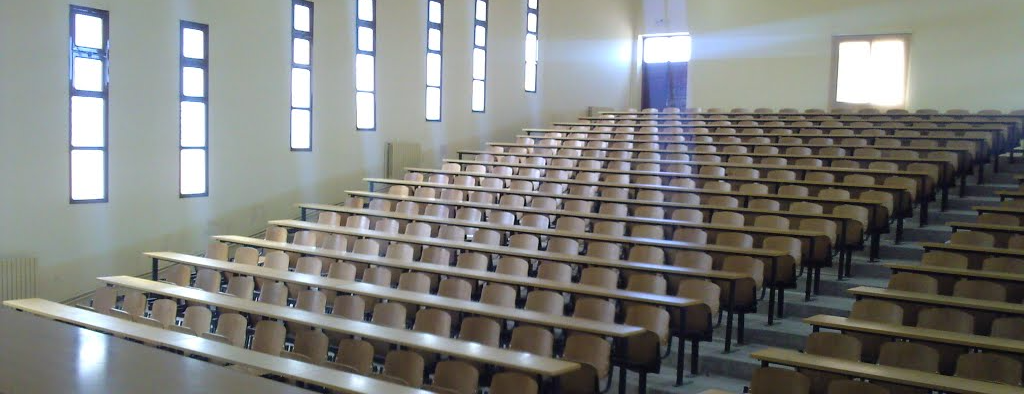Let’s talk politics: a comment on the Algerian Day of Knowledge event in London
The 16th of April is a day to celebrate knowledge in Algeria. The date itself commemorates the death of Abdelhamid Ibn Badis who co-founded the Association of Muslim Algerian Ulema* (جمعية العلماء المسلمين الجزائرين), the body behind the Algerian reformist movement of the 1930s. The association brought together a vast number of Ulema to actively militate for the preservation and reform of the Algerian Islamic heritage and education in the face of colonial oppression and cultural violence. Amongst a number of other things, the association pursued its objectives through the establishment of an independent schooling system throughout the majority of the country, in addition to youth clubs and the conventional preaching through mosques and learning circles. Not surprisingly, it was heavily repressed by the colonial regime. It was also forcefully dissolved and its properties expropriated by the Algerian authorities as early as 1962, the year of independence.
This choice of date for such a celebration always leaves me with a peculiar and bitter taste of irony. The Algerian authorities agreed to establish the 16th of April as the official Day of Knowledge in acknowledgement of Ibn Badis’s leadership of the reformist movement who sought and taught knowledge in the hardest of circumstances. Yet these very authorities were quick to dissolve and expropriate the association as soon as they got a chance. The late Ben Bella made it very clear when he was brought into power to head the new independent state: “I don’t want to hear of the Ulema from now on” he said as El-Bashir El-Ibrahimi, the then president of the association, was ordered into house arrest where he remained till his passing in 1965.
In the midst of this irony, the place that Che Guevara’s famous photo has gained in popular culture comes to mind as a reminder of how the struggle of men and women can be reduced to a fashion garment or any other commodity void of the higher values and sacrifices that are embedded in their memory. Each year, the day a key Algerian leader of intellectual resistance died is celebrated as the day of knowledge, which to me is also a cut throat reminder of our authorities’ obscure and almost sadistic long standing approach to the appropriation of all that belongs to the Algerian people.
Over the years, the trivialisation of this symbolic date and the heritage behind it has taken many shapes and forms, some of which are more subtle than an icon on a t-shirt or an advertising campaign. For three consecutive years now, London has been the venue for the Day of Knowledge event where UK-based Algerian scientists, researchers, students and practitioners are invited to come together to present their work, exchange ideas and debate issues. The top item on the agenda is always the question of how the community abroad can contribute to the development of the country.
This sounds great of course. However, it may be interesting to examine the way the organisation of this event has evolved over the last three years. In its first year, the event was initiated by the Algerian Competences Association (ACA) who invited the Algerian Ambassador to the UK as well as the Secretary of State in charge of the National Community Abroad to attend as honorary guests.
In its second year, the event was jointly organised by ACA and the Algerian Embassy, who sponsored the event. A striking impression that I was left with during this second edition, which I helped organise and run, was how much a co-organiser can dictate the tone and the theme of the discussions that take place during an event. In this case, discussions were often interrupted by the Ambassador himself who would stand up in the middle of an ongoing debate to tell the audience what they should be focusing on and what they should be sweeping aside. It was indeed painful to watch him force himself as the focus of the room in this manner whenever discussions “deviated”, as open discussions often do, from what he thought was acceptable.
This year, there was a significant difference. The event was both organised by and held at the Algerian Embassy, this time in collaboration with a number of, I’m sure, well intentioned individuals, seemingly not affiliated with any organisation and simply referred to as “the Community of Algerian competencies and scientists living in the United Kingdom and Ireland“.
There has therefore been a clear shift of the role played by the representatives of the Algerian authorities in the UK from invited guests to main organisers. If one takes the perspective that the authorities representatives have – finally – realised the importance of engaging with this segment of the Algerian diaspora, at least once a year, to exchange ideas and debate important issues with them, then no harm no foul.
I take a different perspective, and here I should open a bracket. Throughout the years that I spent studying in the UK, I often wondered why the Student Services at the Algerian Consulate never bothered to think about organising similar kind of events and gatherings. I had personally spoken more than once to whoever was running the service at the time about the importance of such gatherings in strengthening the body of Algerian students in the UK and in building a coherent community, but without avail. Eventually, I realised that I was barking up the wrong tree. This experience was one of the main motivations behind the founding of the Algerian Postgraduates in the UK (APGUK), an independent network which aimed to provide an accessible open space for postgraduate students to come together, meet each other, share experiences, etc.
Bracket closed, what I think we are witnessing with this new venture of the Algerian Embassy and the celebration of the Day of Knowledge is a manifestation of the all too familiar approach of putting up an impressive show that actually lacks real substance. Instead of using this event as a space to bring together representatives of Algerian authorities and Algerian researchers and scientists to engage in real debate – as indeed stated in the invitation leaflet (**) – the Embassy chose to engage in pseudo debate that leads no where concrete.

Take the onset of this year’s event for instance, the opening statement of the organisers, I’m told, pleaded the audience and the scheduled presenters to refrain from engaging in political issues. This plea was made more concrete during at least one of the presentations which focused on renewable energy; again, according to accounts of those who were present, the presenter was asked to conclude their talk as soon as the subject of Shale Gas exploration came up, which is a point of contention in current Algerian affairs.
What is the benefit in bringing together representatives of the Algerian authorities, researchers, scientists and practitioners if not to discuss issues common to both? There is indeed an abundance of issues that the Algerian intellectual community abroad can and should contribute towards solving; energy, health, education, development strategy, etc., but a pseudo debate where one is “not permitted” to draw parallels between the scientific and the political won’t help achieve that.
On the day of knowledge, the Algerian Embassy has decide to trivialise the symbolic day that “celebrates” the struggle of an intellectual who defied colonial power through militant education, scholarship and reform. It took over a simple event that originally stemmed from the intellectual community in the UK and effectively exploited it for pseudo engagement and debate.
Eventually one comes to – the actually trivial – realisation that the Algerian authorities and their representatives in and out of the country are simply not interested in providing a platform for serious debates of any sort, intellectual or otherwise, to take place. I see this as no different from what the Student Services were doing (or rather not doing) a few years back. This time however, instead of completely shutting off the Algerian intellectual diaspora, like the Consulate did with postgraduate students, we are witnessing an evolution of strategy where the Embassy simply becomes the locus of these activities. Any potential concrete actions that could result from such events can thus be properly appropriated, or simply dictated from the onset.
The gathering of scientists and researchers, students and practitioners in itself is a healthy and a positive endeavour and should be encouraged and supported. But since the authorities are only interested in pseudo debate then the remedy is simple. The intellectual community abroad should come together under an independent banner and meet through independent events, away from dictations, where they can talk to those who are truly interested in hearing their opinions and help mold them into actions.
PS – On the 16th of April 2013, anasr.org, an independent community led initiative to develop an interaction space for Algerian scientists, researchers and practitioners announced the winners of the Algerian Paper of the Year Awards, 2013 edition.
Notes:
* Ulema: the plural of Alim, the Arabic for scholar, often referring – though not exclusively – to a scholar of religion.
** A segment from the invitation leaflet: “The purpose is to commemorate the Algerian Day of Knowledge enabling Algerian researchers, scientists and professionals as well as representatives of Algerian authorities to take part in this very symbolic day and help in promoting Algerian knowledge. Participants will include seasoned academics and researchers as well as students stepping into the path of business, science and technological research with the view to help them network, support collective competence as well as looking at ways of benefiting Algeria from their expertise and experiences.“
Part two here.





